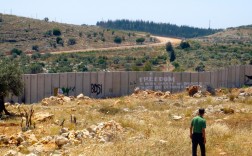Tag: Nablus
-
Revisiting Ni’lin after four years
2nd May 2013 | International Solidarity Movement, Ni’lin, Occupied Palestine By Team Nablus It’s been four years since I had visited and lived in Ni’lin and the decision to visit on Friday filled me simultaneously with excitement and longing but also dread. Four years ago I had supported the non violent resistance in Ni’lin as…
-
Villages of Urif, Burin and Asira violently attacked by settlers
1st May 2013 | International Solidarity Movement, Nablus, Occupied Palestine By Team Nablus Yesterday Israeli settlers from the Illegal settlement of Yizhar set fire to the fields of Asira al Qibliya, Burin and Urif as well as attacking the school and many homes in the villages, all while the Israeli Military and Border Police provided…
-
UPDATED: Two teenagers murdered at checkpoint
15th April 2013 | International Solidarity Movement, ‘Anabta, Occupied Palestine By Team Nablus UPDATED: The fourth of the four Anabta village boys who were present at the murder of Amer Nassar, 17 and Naji al-Balbisi, 18 and the arrest of Deiyaa’ Nassar, 19 was taken by Israeli soldiers at about 4 AM on Tuesday April…

